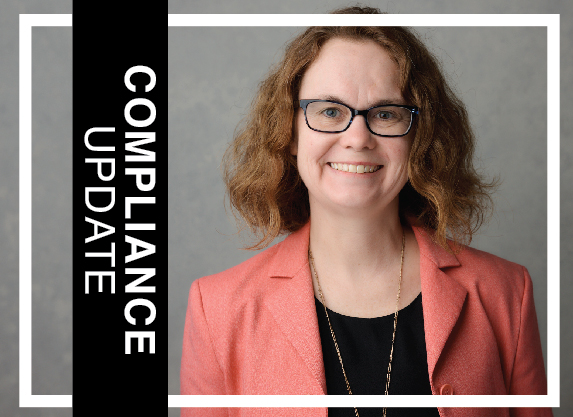|
ICYMI - FOM Learning Session
If you missed the Tuesday learning session with CUCollaborate concerning the discussion of Field of Membership conversion and expansion issues email Amy Kleinschmit for the link to the recording which will be available for 30 days. CUCollaborate consultants explored the processes involved in converting from a state charter credit union to a Federally chartered credit union. Additionally, attendees learned about options for FCU expansion opportunities including special rules for low-income designated credit unions. Fall Legislative and Regulatory Hike the Hill The Dakota Credit Union Association will once again be leading a Legislative and Regulatory Hike the Hill this fall on September 12 and 13, to Washington, DC. Continuing the conversation with our elected officials and regulatory friends is paramount to maintain a favorable operating environment for credit unions. As credit unions are well aware, the regulatory environment has been constantly changing and putting more and more burdens on credit unions. Tentatively, we will be meeting with representatives from NCUA and CFPB on Tuesday and then Hill visits on Wednesday with our elected officials. The group for this fall event is kept small so that attendees are able to engage in meaningful dialogue with our regulators and elected officials. We have a few spots remaining for this trip and scholarship opportunities are available through the Roger Heacock GAC-HTH Scholarship to assist with travel expenses. We hope you will consider joining us for this very important event. It is vital that Dakota credit unions continue to voice their concerns and issues to our regulators and elected officials. Bringing the stories of how the decisions made in Washington DC impact your members is needed for a strong advocacy front. Please contact Amy Kleinschmit if you are interested in joining this event or if you have any questions. NCUA – Operating Fee Methodology At its recent board meeting, the National Credit Union Administration (NCUA) issued a request for comment on changes to the methodology it uses to determine how it apportions operating fees charged to federal credit unions (FCUs). The Notice can be found here and is open for a 60 day comment period. There are two items that the NCUA is contemplating amending, first is to the exemption level below which FCUs are not charged an operating fee. Currently, FCUs reporting average assets of $1 million or less during the preceding four calendar quarters are exempt from paying an operating fee, which has been in place since 2012. The NCUA is proposing to raise the average asset exemption level for FCUs to $2 million and to adjust the exemption threshold annually in future years by the computed rate of asset growth in the credit union system. The second proposed change would potentially impact the three asset tiers of the current fee schedule for natural person FCUs. Currently, a different assessment rate is applied to each tier, and the threshold for each tier is adjusted annually to reflect growth of the credit union system. As noted above, FCUs with $1 million or less in assets pay no operating fee. As explained by the NCUA in the Notice – “The current operating fee schedule is regressive; that is, credit unions with a larger amount of total assets pay a lower marginal rate on those assets above the threshold levels for the lower tiers. Given growth and consolidation in the credit union system, the Board is interested in whether such an approach is an equitable method for allocating the operating fee. There is a potentially wide range of approaches for assessing the operating fee. For example, the Board could adopt a single, flat-rate operating fee for all credit unions with total assets that exceed a standard exemption threshold. Overall, a flat-rate operating fee would shift fees away from relatively smaller credit unions to relatively larger ones, making the operating fee schedule less regressive. The Board could also make the operating fee schedule less regressive by increasing the rates for the second and third tiers on the schedule. Alternatively, adjusting the rates upward for the first and second tiers of the current operating fee would create a more regressive schedule.” NCUA - MDI Preservation Program IRPS 13-1 At the same NCUA board meeting, the NCUA also issued proposed changes to an interpretative ruling and policy statement (IRPS) regarding Minority Depository Institution Preservation Program which is also open for a 60 comment period and can be found here. In 2013, the NCUA Board proposed Interpretive Ruling and Policy Statement (IRPS) 13-1 to establish a Minority Depository Institution Preservation Program (MDI Program) to encourage the preservation of MDIs and the establishment of new ones which was finalized in 2015. Per the notice for comment, “The NCUA is proposing to amend IRPS 13-1 to reflect changes to the agency’s structure and current administration of the MDI Program by CURE and improve the MDI Program, including: recognizing the transfer of the MDI program administration to CURE, incorporating recent program initiatives, simplifying “community it services, as designated in its charter” to refer to an MDI’s field of membership, referencing guidance the NCUA provides examination staff who continue to play a significant role in supporting and guiding MDIs under their supervision, explaining how the NCUA will review an MDI’s designation status during routine evaluations, and adding new subsections on engagement, technical assistance, MDI examinations, Community Development Revolving Loan Fund grants and loans, training and education, and MDI preservation.” COVID-19 Guidance Rescinded The NCUA also recently announced that it has rescinded the pandemic-related guidance previously issued to credit unions. Previously issued Letters to Credit Unions related to the COVID-19 pandemic are now marked as “inactive.” With the ending of the national emergency, the NCUA reviewed all COVID-related supervisory guidance and identified what is no longer applicable or necessary. Per its press release, the NCUA will also notify state supervisory authorities of this action to ensure awareness of the archiving of outdated pandemic-related guidance and any pandemic-related guidance that remains in effect. As always, DakCU members may contact Amy Kleinschmit with any compliance related questions. Comments are closed.
|
The MemoThe Memo is DakCU's newsletter that keeps Want the Memo delivered straight to your inbox?
Archives
July 2024
Categories
All
|
|
Copyright Dakota Credit Union Association. All Rights Reserved.
2005 N Kavaney Dr - Suite 201 | Bismarck, North Dakota 58501 Phone: 800-279-6328 | [email protected] | sitemap | privacy policy |






